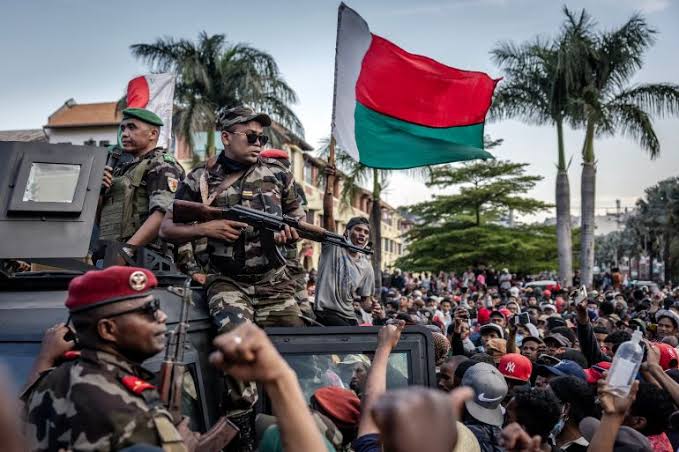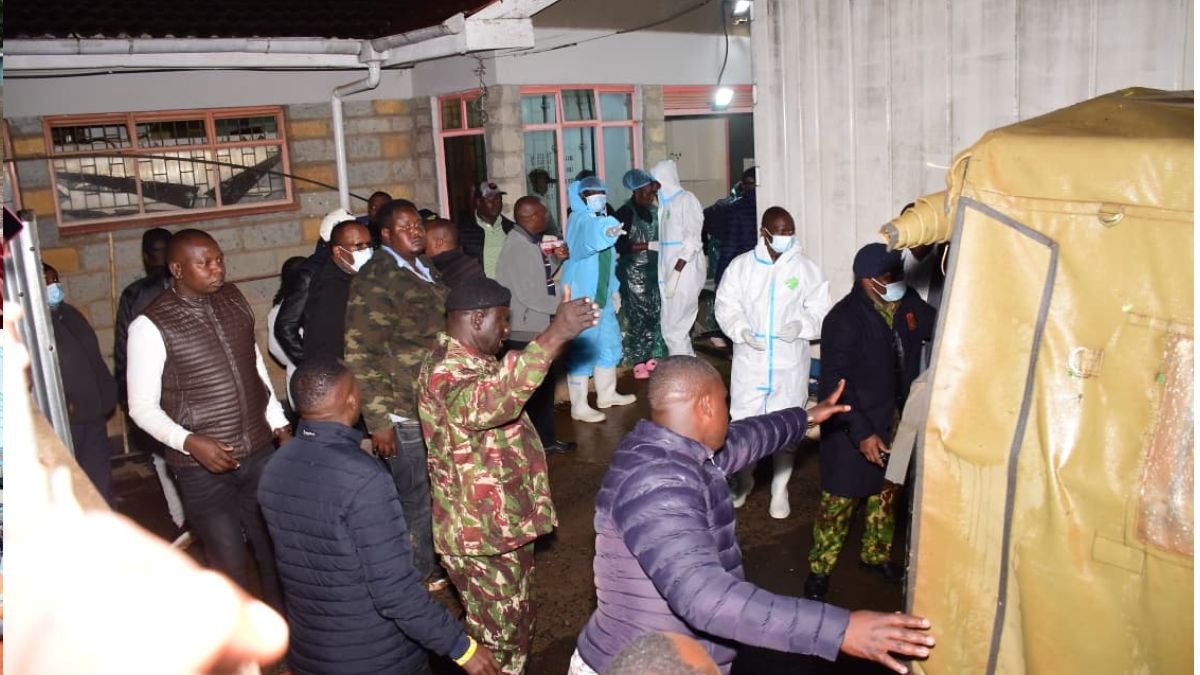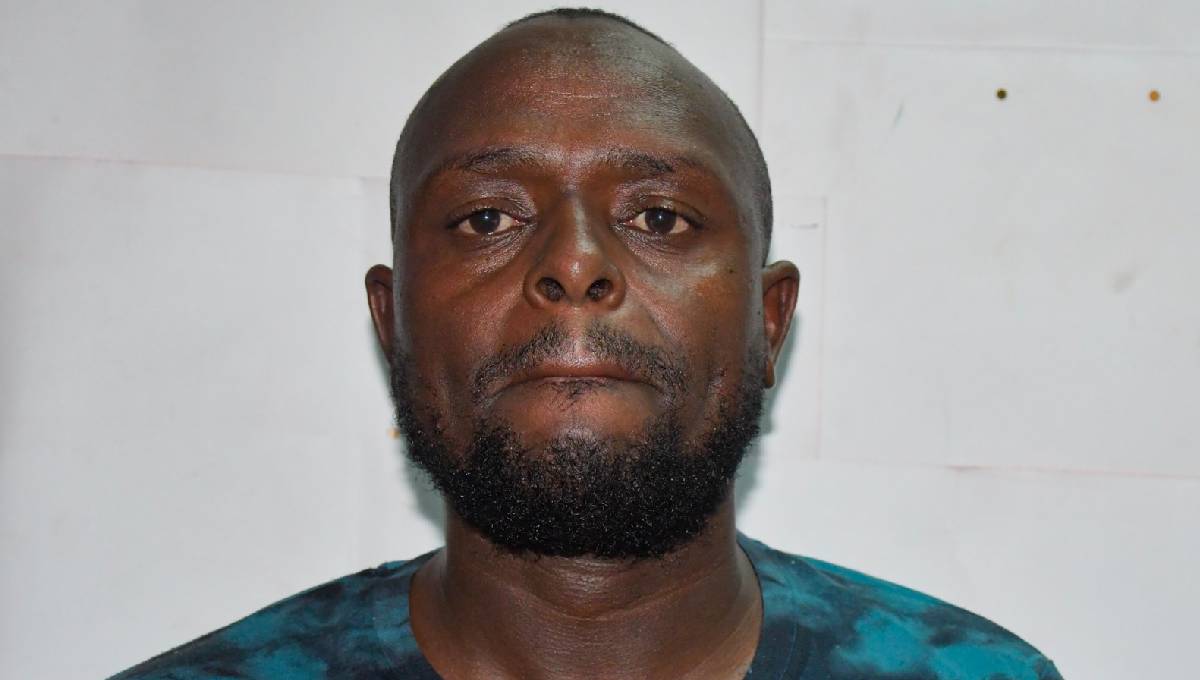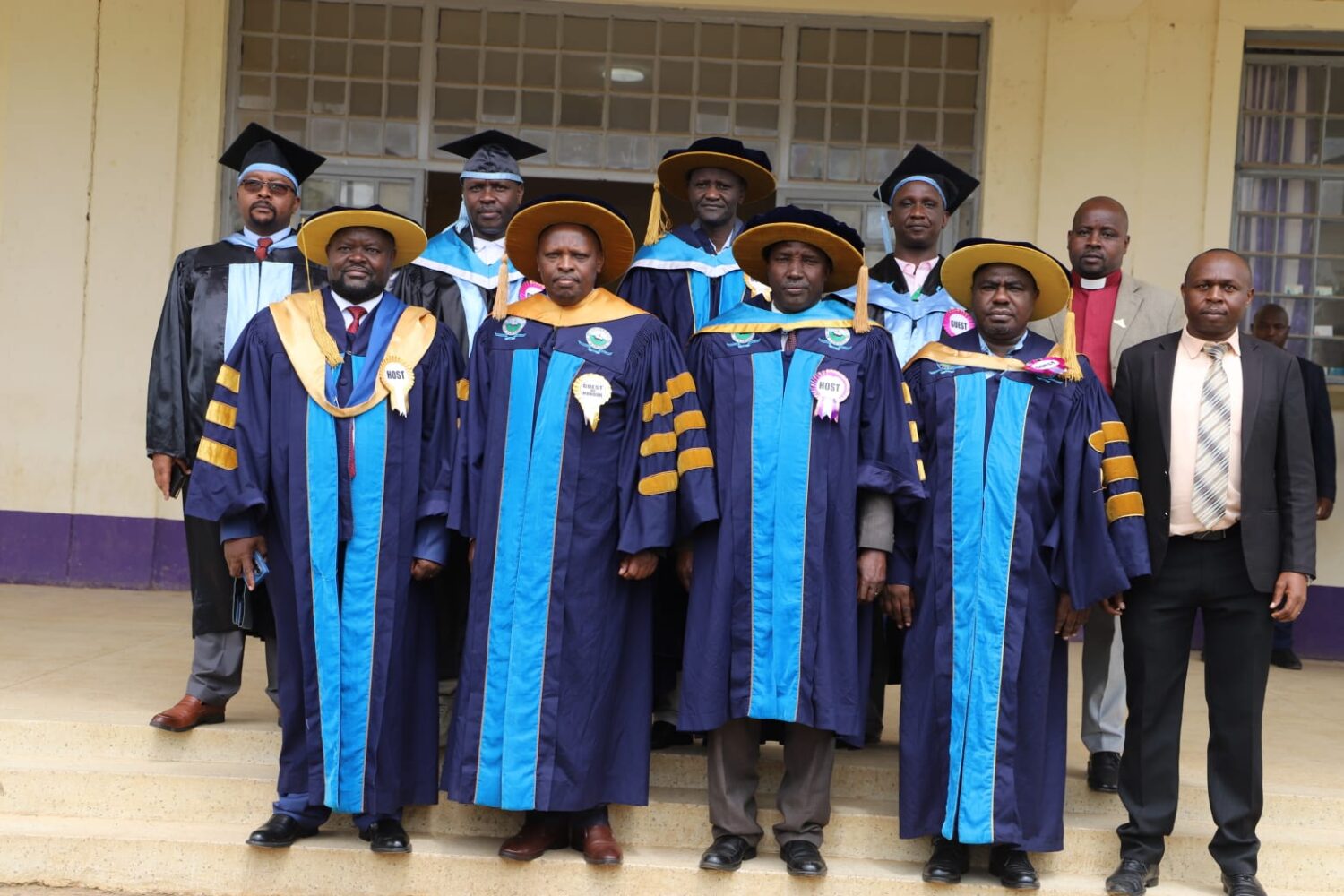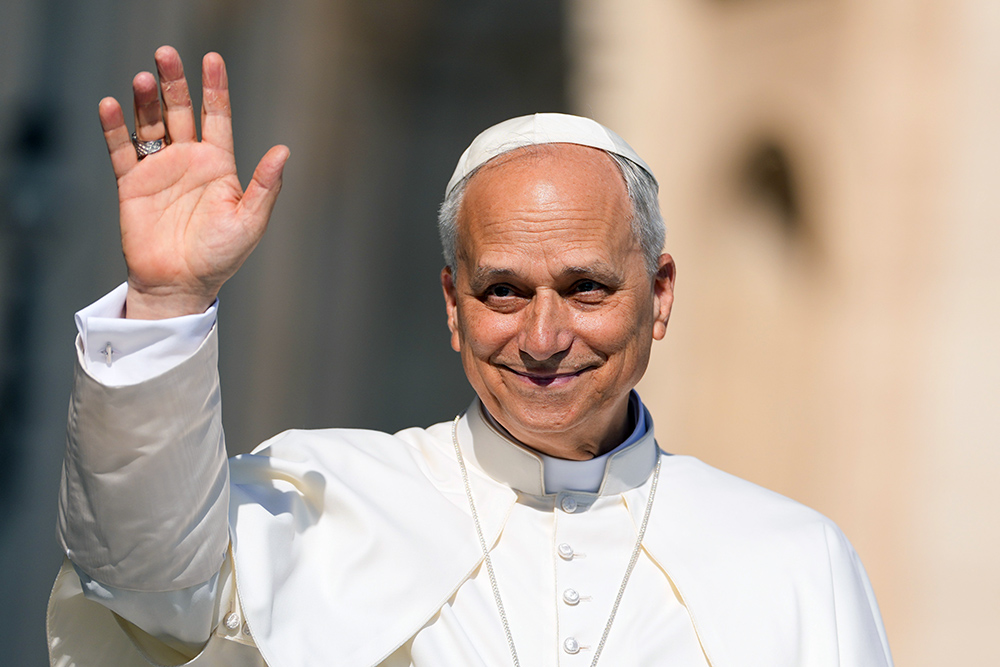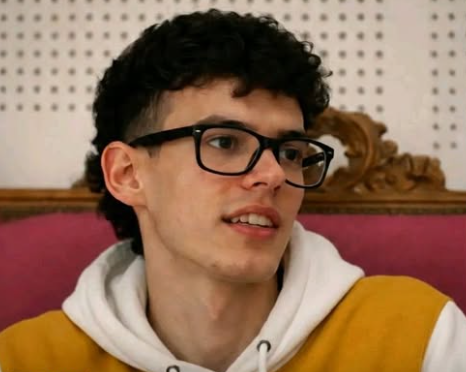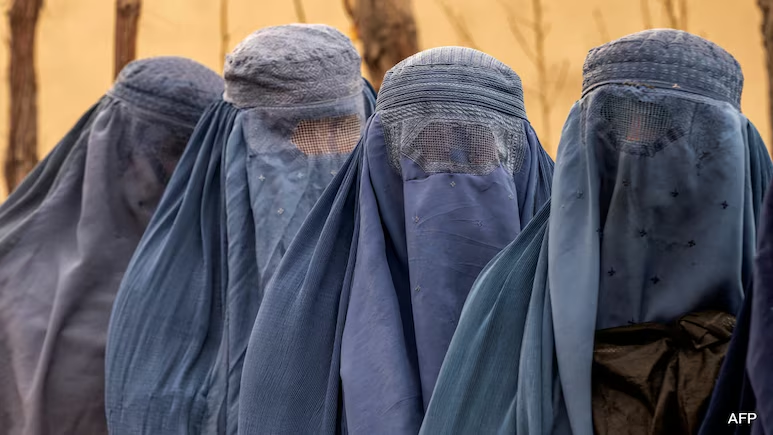Madagascar is in turmoil after elite military units joined anti-government demonstrations, prompting President Andry Rajoelina to announce what he called an attempted coup. The tension has magnified an already volatile national crisis.
It began when police forces reportedly refused orders to use lethal force against protestors, a decision many interpreted as a critical fracture in loyalty. In response, troops from the CAPSAT unit, an elite administrative and technical division defected.
These soldiers then publicly urged other military units to disobey orders to fire on civilians and to side with the people.
CAPSAT’s defiance escalated rapidly. In a video statement, they declared they would assume control over all military command functions, effectively claiming authority over land, air, and naval operations from their base.
The presidency responded by labeling the move an “illegal and forcible seizure of power,” though it offered no concrete evidence of a coordinated plot.
Since late September, citizens, particularly young people, have been demonstrating across Antananarivo and elsewhere over persistent water and power shortages. What began as demands for utilities quickly broadened into calls for deeper political reform, including President Rajoelina’s resignation.
Government responses have included tear gas, stun grenades, and curfews. The United Nations has put the death toll at 22, though officials in Madagascar dispute that number, citing a lower figure of 12.
In a symbolic turn, CAPSAT soldiers escorted protestors into May 13 Square, a historically meaningful site in Antananarivo, where crowds had previously been blocked by security forces. The move sent a strong message of defiance.
Meanwhile, Prime Minister Ruphin Fortunat Zafisambo, himself a military general, called for calm and openness to dialogue, stating the government would engage “youth, unions or the military.”
Observers say the stakes could not be higher: the same CAPSAT unit had helped bring Rajoelina to power during a coup in 2009. As institutional loyalties shift, the country edges closer to a showdown where whether the military eventually supports the government or the protest movement could very well decide its future.
The presidency has called for dialogue, but with CAPSAT assuming command over the armed forces and openly rejecting orders to fire on civilians, the pathway forward is uncertain. The crisis continues to unfold.


